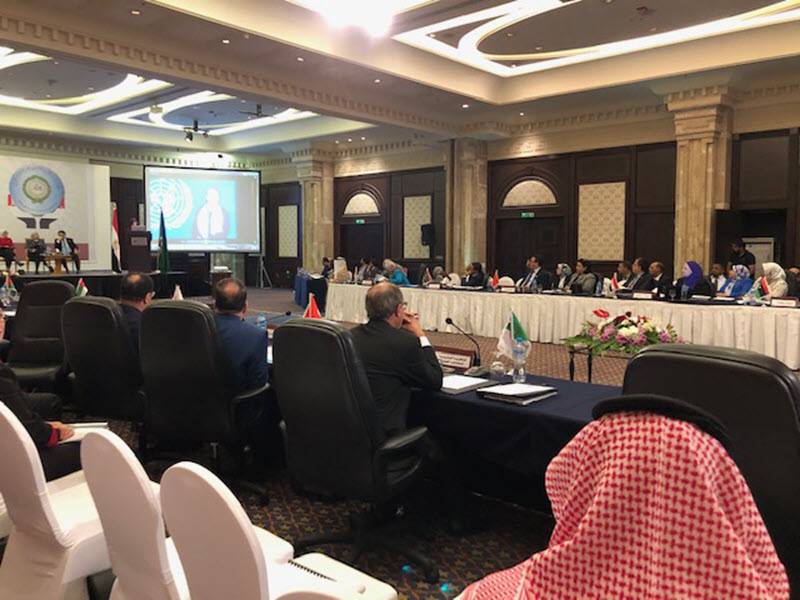
Within the context of the United Nations and League of Arab States (LAS) cooperation and UNESCO’s MOST (Management of Social Transformations) Programme, the MOST Forum of Arab Social and Health Ministers on “Multi-Dimensional Social Protection Policies in Conflict and Conflict-Affected Arab States” was co-organized by the UNESCO Regional Bureau for Science in the Arab States and LAS (Social Sector) in Sharm El-Sheikh, Egypt, on 4 December 2018. The Forum took place in conjuncture with the joint meeting of the Councils of Arab Social and Health Ministers.
Held under the auspices of H.E. Dr. Eng. Mostafa Madbouly, the Prime Minister of the Arab Republic of Egypt, the Forum concluded with the adoption of a Ministerial Declaration of Arab Social and Health Ministers.
The Ministers agreed
- to enhance national life-cycle social protection policies to achieve more sustainable and better coordination;
- to enhance institutional capacity and evidence-based policies through several initiatives such as to collect disaggregated data and empirical evidence periodically, based on gender, age, disability, geographic location and relevant socio-economic conditions.
- to consider the organization of further editions of the MOST Ministerial Forums, the establishment of MOST schools and committees, among other initiatives.
It was also agreed to present the outcome of the Forum to the 57th session of the United Nations Commission for Social Development, to be held in New York from 11 to 21 February 2019. The priority theme will be "Addressing inequalities and challenges to social inclusion through fiscal, wage and social protection policies", thus contributing to South-South and South-North learning and international evidence-based policy making.
The Forum benefitted from exchanges among Ministers and other high level representatives, researchers, and the UN system including UNDESA, WHO, UNICEF and ESCWA. A number of NGOs also participated in the meeting.
The Forum was opened by H.E. Brigadier Khaled Fouda, Governor of South-Sinai, H.E. Dr. Hind Al-Sabeeh, Minister of Social Affairs and Labour, State of Kuwait, and Chairman of the 37th session of the Council of Arab Ministers of Social Affairs, H.E. Dr Ghazi Manwar Al-Zubin, Minister of Health, Hashemite Kingdom of Jordan, and Chairman of the 49th session of the Council of Arab Ministers of Health, H.E. Dr Ghada Waly, Minister of Social Solidarity, Arab Republic of Egypt, and Chairman of the Executive Bureau of the Council of Arab Minister of Social Affairs and H.E. Ambassador Haifa Abu Ghazaleh, Assistant Secretary-General, and Head of the Social Affairs Sector, League of Arab States. They stressed the importance of investing in social protection to achieve social development, and drew the attention to the challenges with interruptions in service delivery due to financial constraints and infrastructure deficit as a consequence of the conflicts and also an increase in refugees and internally displaced people who need social protection such as jobs, health services, and access to education.
Minister Waly commended UNESCO for its support to co-organize the Forum and stressed, as many other speakers, the importance of policies supported by evidence and thus the value of the MOST Ministerial Forums.
The Director of the UNESCO Regional Office for Science in the Arab States, based in Cairo, Dr Ghaith Fariz, highlighted in his statement that the conflicts in the region have tested social protection programs in the region and that Arab countries have to seize the opportunity to review existing policies for better coverage, efficiency and effectiveness. He noted that the Ministerial Forum is a multi-stakeholder platform that can contribute to evidence-based policies, as one of several mechanisms of the MOST Programme, and that UNESCO and MOST are ready to support Member States, especially within the social pillar of Agenda 2030.
Source: UNESCO
 Welcome to the United Nations
Welcome to the United Nations